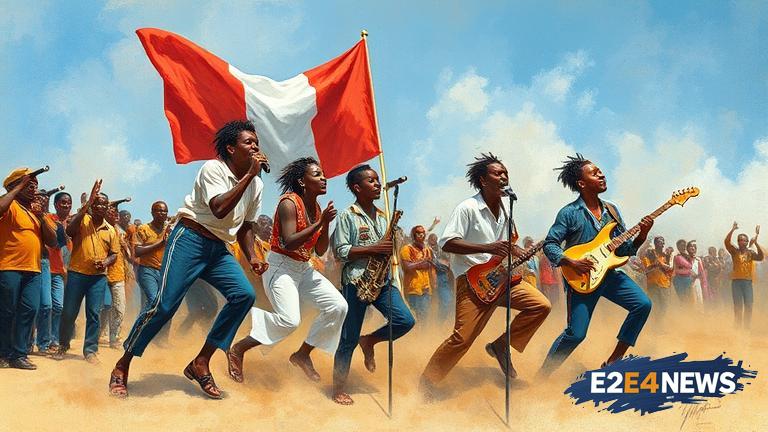Live Aid, a groundbreaking dual-venue benefit concert, was held on July 13, 1985, to raise funds for famine relief in Africa. The event was organized by Bob Geldof and Midge Ure in response to the devastating Ethiopian famine. The concert featured a star-studded lineup, including Queen, U2, David Bowie, and Madonna, among many others. The event was held simultaneously at Wembley Stadium in London and John F. Kennedy Stadium in Philadelphia, with an estimated global audience of 1.5 billion people. Live Aid was a massive success, raising over $150 million for famine relief and bringing attention to the crisis in Africa. The concert was also notable for its technical achievements, including the use of satellite link-ups to connect the two venues. The event was a culmination of months of planning and organization, with Geldof and Ure working tirelessly to bring the music world together for a common cause. The impact of Live Aid was felt far beyond the concert itself, with the event helping to raise awareness about the famine in Africa and inspiring a new generation of musicians to use their platform for social activism. In the years since Live Aid, the event has become an iconic moment in music history, symbolizing the power of music to bring people together and make a difference. Despite some criticism of the event’s approach to addressing the famine, Live Aid remains a powerful example of the music world’s ability to come together and make a positive impact. The event also spawned a number of spin-off concerts and events, including Live 8 and Live Earth, which continued the legacy of using music as a force for social change. In the decades since Live Aid, the music world has continued to evolve, but the event’s impact can still be felt today. Many of the musicians who performed at Live Aid have gone on to become legends in their own right, and the event’s influence can be seen in the many benefit concerts and charity events that have followed in its footsteps. As the world continues to face new challenges and crises, the legacy of Live Aid serves as a reminder of the power of music to bring people together and inspire positive change. The event’s 40th anniversary is a timely reminder of the importance of using our collective voices to make a difference, and the impact that can be achieved when we come together for a common cause. In conclusion, Live Aid was a groundbreaking event that brought the music world together to fight famine in Africa, and its legacy continues to inspire and influence musicians and music fans around the world today.
